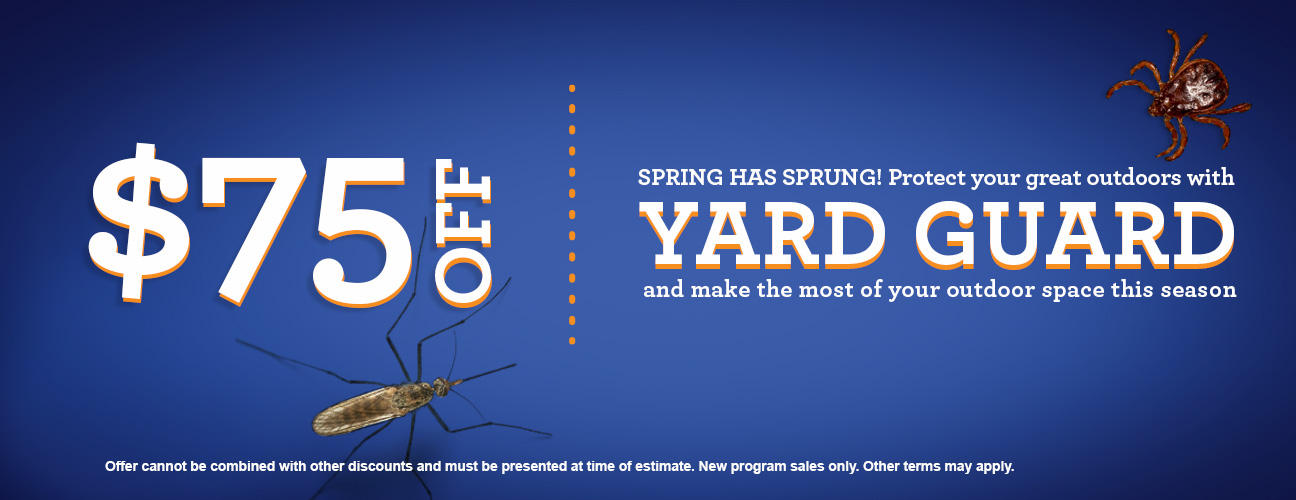Residential
Pest Control in Somerset County, NJ
Somerset County Pest Treatments
Somerset County is one of the most vibrant counties in New Jersey. It has a combination of suburban areas and rural areas, with much of it located in the foothills of the mountains. There are animals all over Somerset, some clearly pests, and others — like deer — pests to some, a blessing to others. Pests try to come inside buildings. They can cause substantial damage when they do. Pests damage property, spread disease, and contaminate food. In addition, their waste can cause significant damage as well. For high-quality pest control, Somerset County can trust Horizon Pest Control.
Why is Horizon Pest Control Somerset County’s choice for seasonal residential pest control? It is our comprehensive approach to pest control. We start with prevention, with the goal of keeping pests from entering homes. If you do get an infestation, we handle pest eradication with customized plans for each home.
This customization is the key to our superior customer service. Our technicians are highly trained to identify and treat various pest problems. We use scientifically-backed methods with proven success in our area to handle common pest problems and to tackle any unusual pest issues that may arise. Our reviews show how satisfied our customers are. They appreciate how respectful and kind our technicians are and that our treatments work. It is why we are one of the most respected home service providers in Somerset County.
Common Pests in Somerset County
With its gorgeous natural setting, Rockland County is host to a variety of pests. Keep in mind that many pest species all serve critical roles in the ecosystem — it is their interaction with humans that makes them pests. Of course, New Jersey is also home to a number of invasive species, which not only bother humans but also play a negative role in the state’s ecosystem. Familiarizing yourself with the most common pests can help you identify them, take preventative steps, and act to eradicate the problem as soon as you notice an issue.
Spotted Lanternflies
Spotted lanternflies are an invasive species that can attack plants of all kinds. They feed on plant species, and they can devastate areas that depend on plants, such as farms and vineyards. They can also wreak havoc on suburban and urban gardens. They damage more plants than native species. Since first being spotted in Pennsylvania in 2014, they have spread extensively. In addition to devouring plants, they may also spread plant diseases. Even without disease, since they often attack plants en masse, they can weaken plants and trees.
If you suspect spotted lanternflies, it is essential to contact a pest control professional immediately. They are very invasive, and they spread quickly. They pose a threat to any nearby agriculture, as well as ornamental landscaping and even residential vegetable gardens.
Bed Bugs
Not strictly a local pest, bed bugs are a problem in Somerset County and beyond. These bugs are hitchhikers, traveling on your clothing, in your suitcases, and more. You can bring them home with you after traveling. Once in your home, they will live in hiding places like in mattresses, clothing, pillows, furniture, and behind electrical outlets and picture frames.
Bed bugs are tiny, making them very difficult to detect with the naked eye. Their eggs are even smaller. Many people do not ever see the bugs. Just notice evidence of them. They leave blood marks on bedding and furniture. They may also leave feces on bedding or the walls. Plus, they leave tiny bites on people, which are often grouped, differentiating them from mosquito bites.
Bed bugs are not just a nuisance — since they are hitchhikers, you do not want to have anyone in your home while you are dealing with an infestation. In fact, you probably got them from someone else’s home, a hotel, or another location. They are also resistant to most commonly available pesticides. Fortunately, Horizon Pest Control has techniques that are very effective against these biting pests.
Mosquitoes
Mosquitoes are tiny pests, but they pack a massive punch. In fact, they are responsible for more deaths each year than any other animal. In fact, many people think that they are the deadliest animal in history. That is because mosquitoes are a perfect vector for diseases. Blood drinkers they travel from person to person and animal to animal, picking up diseases and transmitting them. While not every mosquito carries disease, there are disease-carrying mosquitoes in the area. They could carry Zika, West Nile, and Yellow Fever.
Prevention is an integral part of keeping your yard free from these flying pests. Since they breed in stagnant water, reducing anything that collects water is critical. However, you only have control over your yard, and mosquitoes travel considerable distances to find prey. That means that unless your neighbors are equally vigilant in their mosquito control efforts, you will likely see these nasty biting bugs.
We can treat your yard for mosquitoes, reducing the likelihood of the pests in your area. We have several different approaches. Choosing the right one depends on several factors, including the size of your yard. Contact Horizon Pest Control to learn more about your options.
Rodents
Rodents are everywhere. They live in all types of nature and play an essential role in the ecosystem. However, the more humans develop the land, the less natural habitat they have. Plus, they have learned that humans — and our buildings — can provide a pretty cushy life. Our buildings are warm, they usually have a source of water, and they have stored food. No wonder rodents want to come inside.
However, getting rodents in your building can be extremely dangerous. First, rodents chew on everything. They need to do so in order to keep their teeth sharp. So, if they get in your home, they will chew on wood and insulation, which can damage your home. Even more alarming, they often chew on electrical wiring, which can put you at risk for a fire. The risk of fire is not limited to property — people die from these fires.
Like mosquitos, rodents are also vectors for disease. They can transmit those diseases through saliva, urine, and droppings. That means that a rodent does not need to bite you to spread disease to you. In fact, they can spread disease without you even knowing that you have a rodent problem. Some types of rodents dribble urine as they walk, leaving a scent trail. They can spread hantavirus, leptospirosis, and salmonellosis through their urine and droppings.
Not all rodents have the same risk of disease, but they all like to chew. Chipmunks and squirrels look adorable when you watch them playing in your trees or yard. However, if they get into your home, they can cause a significant amount of damage. In addition to chewing up your things, their waste can cause massive problems, too.
While rodents may be small, their infestations are a big problem. Rats and mice will hide from people, so if you see one in your home, there are almost certainly more. Horizon Pest Control can help you eradicate the rodents in your home and execute an exclusion plan to keep other rodents from getting inside your home.
Signs of Pest Infestations
Preventing pest problems in Somerset County is best. Spotting them quickly is your next-best option. So, it helps to know the signs of a pest infestation. You can use all of your senses to determine if you have pests. You may see, hear, or smell them. If you see signs, contact us as soon as possible. The earlier you catch a pest problem, the easier it is to handle and the less damage it can do.
Almost all pests leave visible droppings. So droppings are our number one sign of a potential pest infestation. Most droppings are brown to black, but they vary in size according to the pests involved. Cockroach droppings look like coffee grounds, while mouse and rat droppings are much more significant. Anything that looks like debris, dirt, or droppings should be a red flag.
You should also look for chewed-up items. Many types of pests like to gnaw on things. If you see unexplained damage or chewing, then it is a good indicator that you have pests.
For larger pests, you may hear them moving around. If you hear scrambling in your walls, it is probably rodents or another type of pest. You want to make sure to have a professional get rid of them — if one of them dies in your home, it will smell horrible.
You want to reach out to a pest control professional as soon as you notice signs of a pest infestation. Pest infestations do not resolve on their own. They just keep getting worse. So, contact a pest control professional as soon as you suspect an issue.
Choose Horizon Pest Control
Somerset County has many pest control companies, so why should you choose us? Well, we have spent decades perfecting our customer service and pest control techniques. The result is a company that treats you well and provides top-tier service. It is why our reputation is excellent throughout New Jersey and the New York metro area.
When you call, ask about our Home Guard Program. This customizable, comprehensive program includes inspections, pest management, and treatment. We tailor it to your home and your needs instead of taking a one-size-fits-all approach.
If you are in the market for reliable, safe pest control and top-tier customer services, Horizon Pest Control should be your choice. Contact us to find out more.





